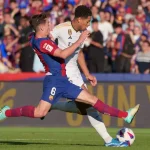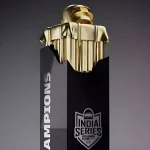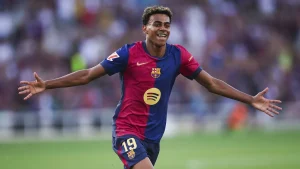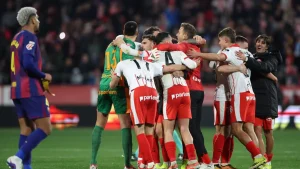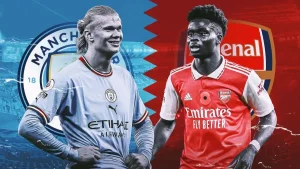Barcelona Vs Chelsea 2009
Football fans often debate about controversial decisions, but few matches have generated as much anger and suspicion as the 2009 UEFA Champions League semi-final between Chelsea and Barcelona. The game at Stamford Bridge is remembered not just for the drama on the pitch, but for the referee’s highly disputed calls.
To this day, many supporters believe Chelsea were robbed of a place in the final due to unfair officiating. This has grown into one of the biggest football conspiracy theories, suggesting UEFA had an interest in seeing Barcelona progress.
Background of the Match
The second leg took place on 6 May 2009 at Stamford Bridge. Chelsea, managed by Guus Hiddink, faced Pep Guardiola’s Barcelona after a goalless first leg at Camp Nou. Chelsea dominated large parts of the match and looked set for the final. Michael Essien’s stunning goal gave them an early lead, but what followed became one of the most controversial refereeing displays in Champions League history.
The Referee at the Center of Controversy

Norwegian referee Tom Henning Øvrebø officiated the game. His decisions quickly became the focal point of worldwide debate. Chelsea had several strong penalty appeals ignored:
- Didier Drogba brought down by Eric Abidal.
- Handball appeals against Gerard Piqué and Samuel Eto’o.
- Another handball shout against Andrés Iniesta.
- A shirt pull on Nicolas Anelka inside the box.
Despite multiple protests, none of the incidents resulted in a penalty. Abidal was later sent off, but many Chelsea players felt it did not balance the series of denied decisions.
Barcelona’s Late Goal
In the dying minutes, Andrés Iniesta scored a stunning equaliser, sending Barcelona through to the final on away goals. Chelsea players and fans were left furious. Didier Drogba famously shouted “It’s a disgrace” into the cameras after the final whistle, reflecting the anger across the footballing world.
The Conspiracy Theory
Many Chelsea supporters believe the match was deliberately influenced to ensure Barcelona reached the final. Theories include:
- UEFA Preference: Fans claimed UEFA wanted Barcelona in the final against Manchester United to create a “dream” matchup.
- Commercial Interests: With Lionel Messi rising as the global face of football, some argued that UEFA wanted him on the biggest stage.
- Referee Pressure: Some suggest Øvrebø was under pressure or influenced to favour Barcelona, though he denied this.
Øvrebø later admitted he made mistakes but rejected any idea of corruption. Still, the controversy only fuelled belief in a wider plot.
Aftermath and Legacy
Barcelona went on to beat Manchester United in the final, beginning Pep Guardiola’s legendary era. For Chelsea, the match remains one of their most painful European exits. The incident also sparked debate about introducing technology in football, which eventually contributed to VAR’s arrival years later.
Even today, fans bring up the 2009 Chelsea vs Barcelona match when discussing conspiracy theories in football. For many, it remains the ultimate “what if” in Champions League history.
FAQs
Q1. Why was the Chelsea vs Barcelona 2009 match so controversial?
A. Because referee Tom Henning Øvrebø denied Chelsea several strong penalty appeals, leading many to believe they were unfairly eliminated.
Q2. How many penalties did Chelsea claim in the match?
A. Chelsea appealed for at least four clear penalties during the game, all of which were denied.
Q3. Did UEFA ever investigate the match?
A. No official corruption investigation was opened, though UEFA acknowledged the controversy.
Q4. Did the referee admit to making mistakes?
A. Yes, Tom Henning Øvrebø later admitted he made errors but denied any deliberate bias.
Q5. What impact did this match have on football?
A. It intensified calls for video technology, eventually leading to the introduction of VAR in major competitions.
Also Read- Where To Watch Carabao Cup: Live Stream And TV Guide





